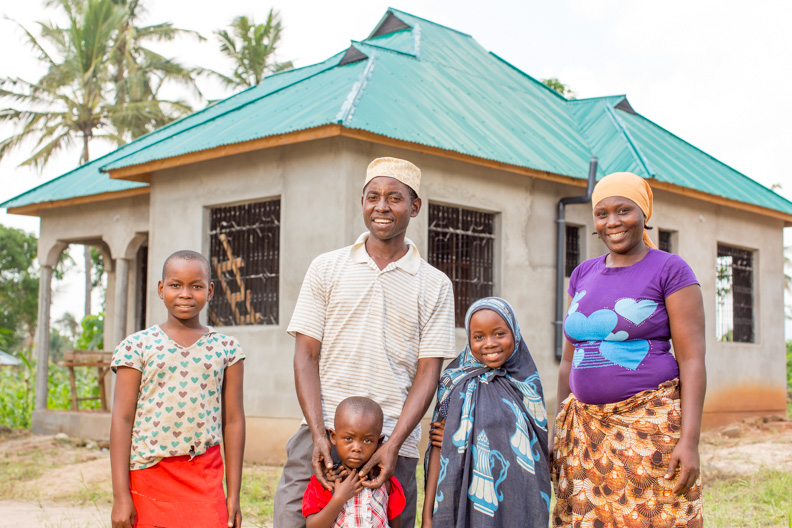BAGAMOYO, Tanzania—Before connecting with Heifer International Tanzania, Dizouza Ally Mrisho and his family weren’t able to eat every day.
“On a lucky day, I would eat two meals,” he said. “Maize porridge in the morning and ugali (maize flour combined with water) with sweet potato leaves in the evening.”
The lack of nutrition affected his daily productivity. Mrisho worked on neighboring farms to earn immediate cash—money from investing time into his own farm wouldn’t pay off quickly enough, so all but an acre remained fallow.
Due to their poor diets, Mrisho’s three daughters began to develop anemia. Worse, the family couldn’t afford a mosquito net (about a $4 expense). During the rainy season (March-May), the children would usually catch malaria a couple of times. They might catch it once more before the end of the year. Mrisho and his wife, Mariam Bakari Abdalah, were also infected with malaria regularly.
“This was always the situation,” Mrisho said. “After Heifer came, I saw changes.”
In July 2012, Mrisho and his family received a heifer and training on dairy farming, and the farmer group he’s a part of received a bull. The family now earns about 8,000 shillings ($4) a day through the sale of milk. They bought a mosquito net, and this year no one has had malaria. And the health of the children has improved in general.
“Now we can decide what we want to eat,” Mrisho said. In addition to drinking fresh milk, the family has been able to buy beef, plantains, carrots, rice, fish and other foods from milk profits.
Income from the sale of milk has allowed Mrisho to spend time on his own farm, where he now grows pineapples and bananas commercially and maize for his family. Manure from the cow has also improved agricultural productivity.
Mrisho used to earn about 500,000 shillings ($245) a year on pineapples, which he grew on half an acre. Now his plants are more productive, and he has more time to plant pineapples, which now fill 4.5 acres of land. Last year, he earned 14 million shillings ($6,848) from pineapples. His banana sales have increased similarly.
The extra capital has allowed the family to build a new home, hire laborers to tend to the farm, buy a motorcycle and invest in the girls’ education. The latter is especially important to Mrisho. Most girls in the community are married before high school, and it is thought of as a waste to send girls to university, but Mrisho wants something else for his daughters.

“Looking at the future, I want them to be independent, develop themselves and face the challenges that come,” Mrisho said. “It’s not a waste, they need to be independent.”
As role models for his daughters, Mrisho pointed to two Tanzanian women in high-ranking positions—Dr. Asha-Rose Migiro, the former deputy secretary-general of the United Nations, and Anne Makinda, the first female speaker of the National Assembly of Tanzania.
“This woman (Makinda) is shaking the walls of Parliament. I believe that if my girls get an education, they can get there. If a woman is educated, she can go to higher places.”
As for his future, Mrisho would like to make sure his neighbors see the same prosperity that he has seen. “My goal is to pass on and pass on until the whole village has a cow.”